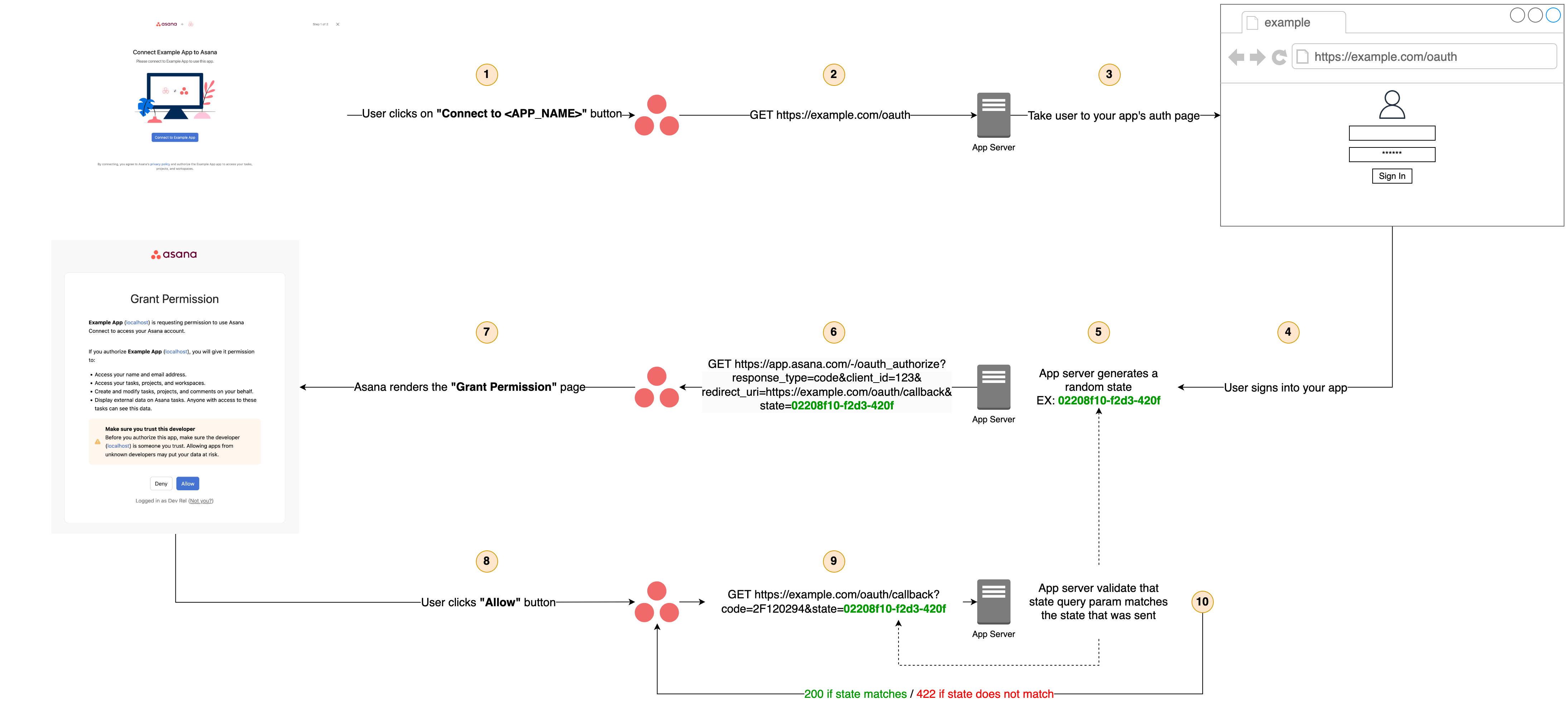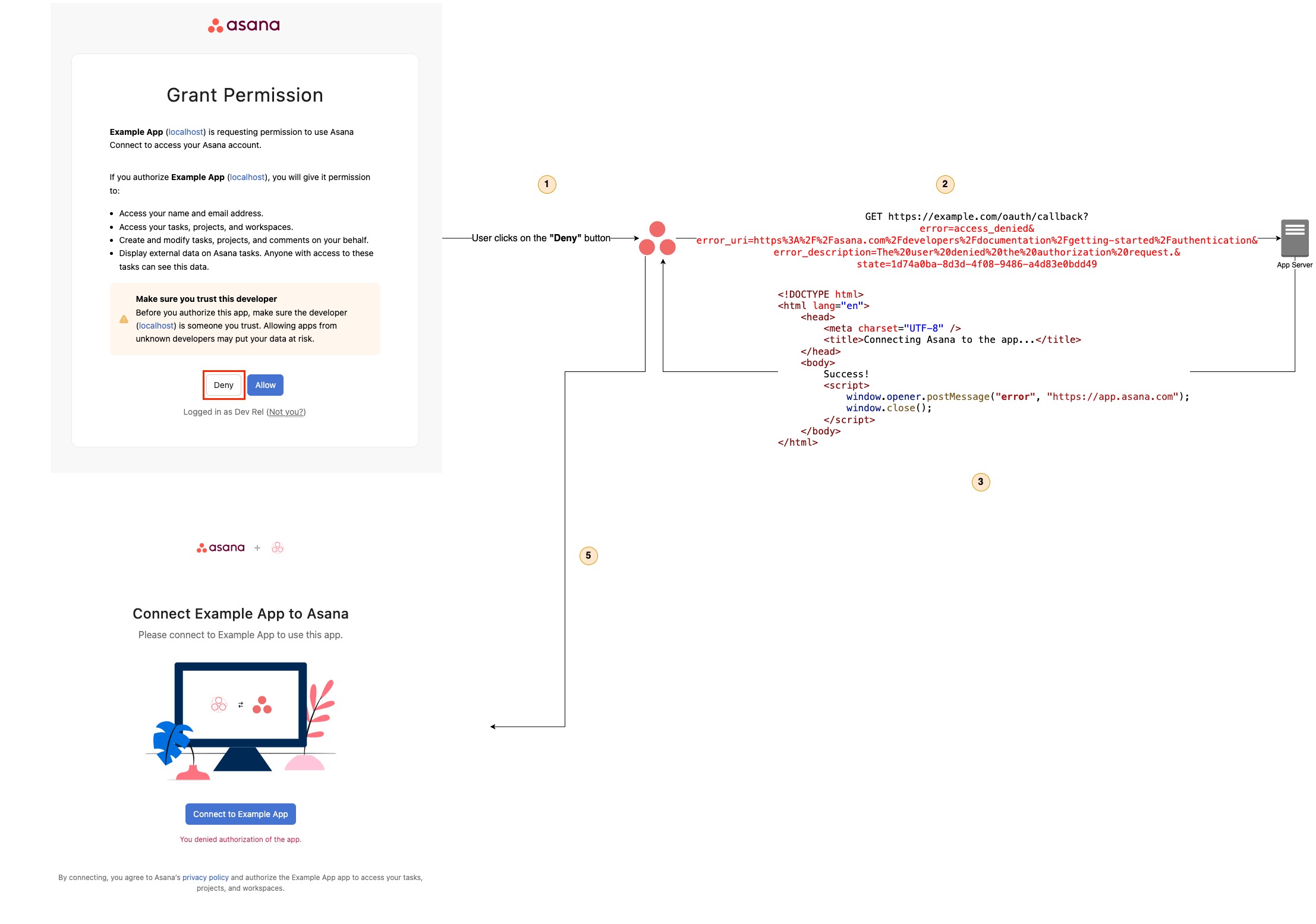App component approval checklist
A list of criteria your app component app must meet to pass our review process
Security
1: Ensure that the state parameter is being respected
state parameter is being respectedThe state variable in OAuth is used to prevent Cross-Site Request Forgery (CSRF) attacks. By validating the state query parameter, you enhance the security and reliability of your OAuth implementation, protecting both your application and its users from various types of attacks and vulnerabilities.
During the OAuth process, your app server should send a randomized state value to Asana when it calls GET https://app.asana.com/-/oauth_authorize. This will take the user to the "Grant Permission" page. When the user clicks on "Allow", Asana will make an API call back to your app server's redirect URL with the state parameter you provided earlier (e.g., GET https://example.com/oauth/callback?...&state=02208f10-f2d3-420f). When this happens, your app should verify that the state that the request is coming from matches the state that you sent earlier. If the state does not match, your app should return a 422 error.

For more information on the state parameter, see additional documentation.
2: state query param is unguessable
state query param is unguessableMake sure the state that you are sending to Asana's https://app.asana.com/-/oauth_authorizeendpoint is randomized and not easily guessable. By making the state variable unguessable (e.g., using the UUID format), you add an extra layer of security to your OAuth implementation, protecting against various attack vectors and ensuring a more secure authentication process.
EX: Good state value
state valuec527dd5e-4fa5-4626-a064-f81218d8c856EX: Bad state value
state valuehello-world3: Handle the "Deny" use case
When the user clicks on the "Deny" button on the grant permission page, your app should return the following:
<!DOCTYPE html>
<html lang="en">
<head>
<meta charset="UTF-8" />
<title>Connecting Asana to the app...</title>
</head>
<body>
Error
<script>
window.opener.postMessage("error", "https://app.asana.com");
window.close();
</script>
</body>
</html>
Doing so will redirect the user to the OAuth page, where it will show the message: "You denied authorization of the app."

4: Ensure that the x-asana-request-signature header is being respected
x-asana-request-signature header is being respectedEach time Asana makes a request to your app server's app component endpoints (e.g., Get form metadata, On submit callback, etc.), we send an x-asana-request-signature value in the request header. Your app server should generate a computed signature based on the request and compare it to the x-asana-request-signature from the request header. If the computed signature and x-asana-request-signature do not match, your app server should return a 400 error.
For details on how to generate the computed signature see: More details on validating request signatures
GET Requests

POST Requests

5: Ensure that the expires_at query param is being respected
expires_at query param is being respectedEach time Asana sends a request to your app server's app component endpoints, we include an expires_at query parameter. Your app server should check this value and only return a 200 response if the current date and time is before the expires_at time.

Updated 4 months ago